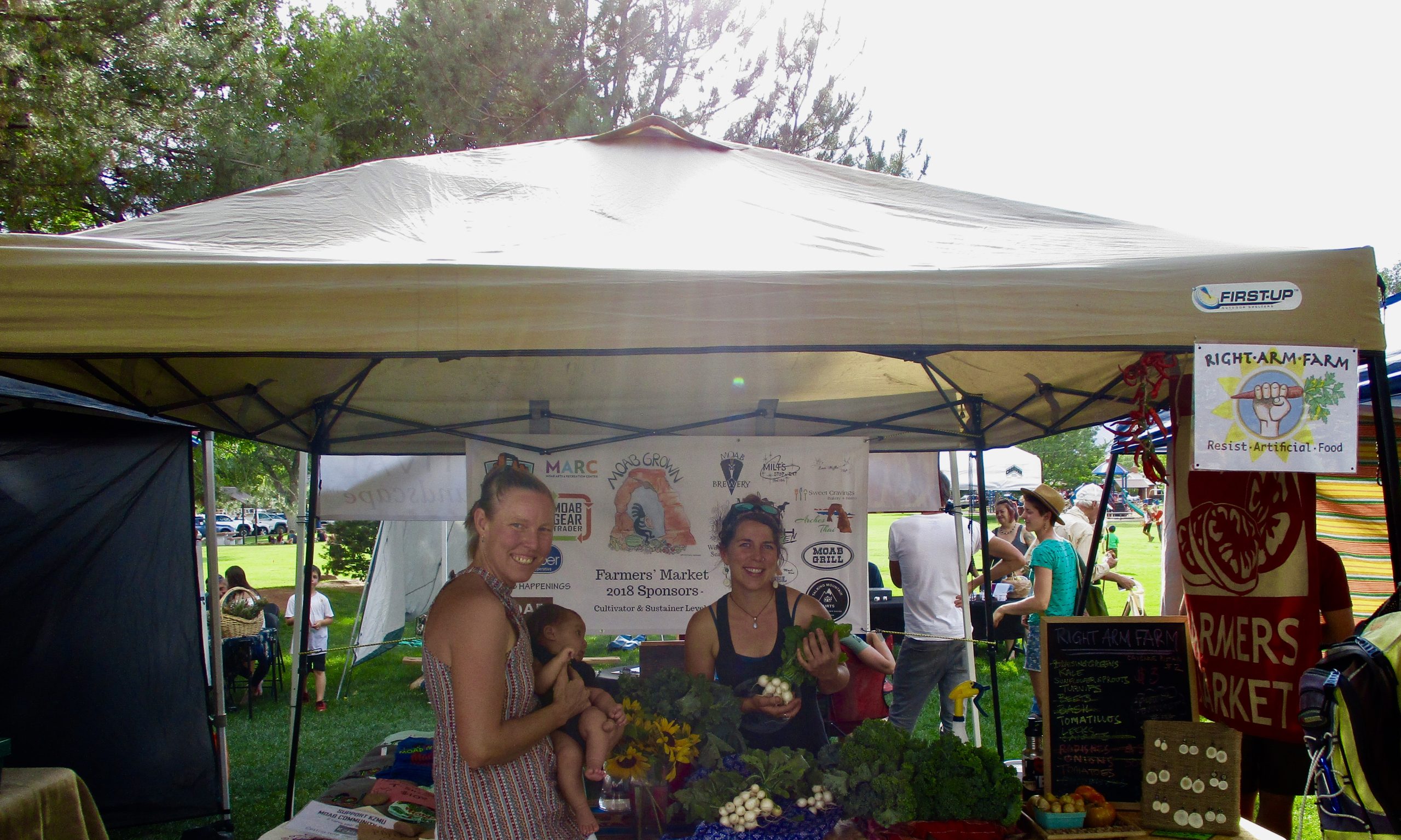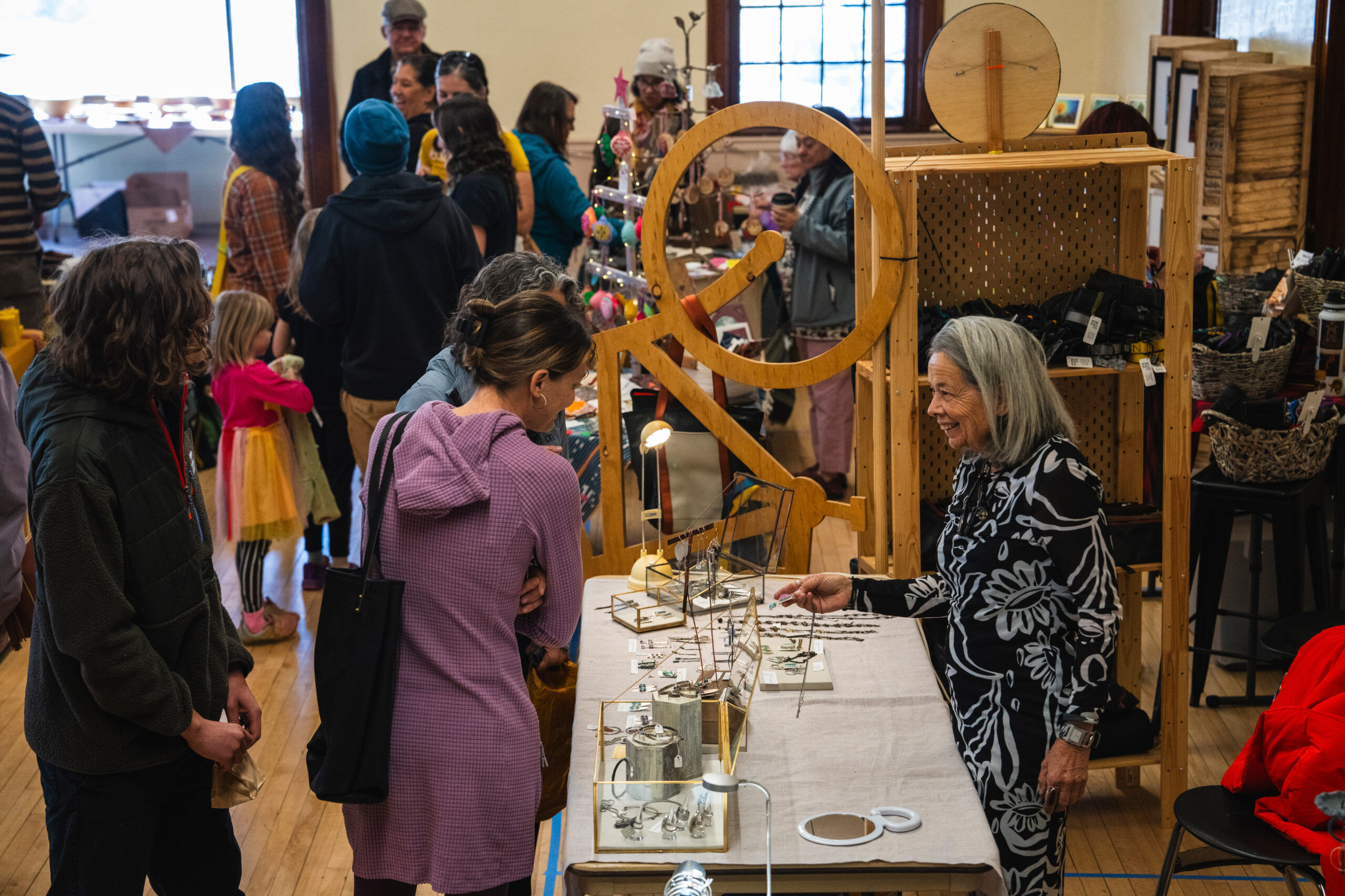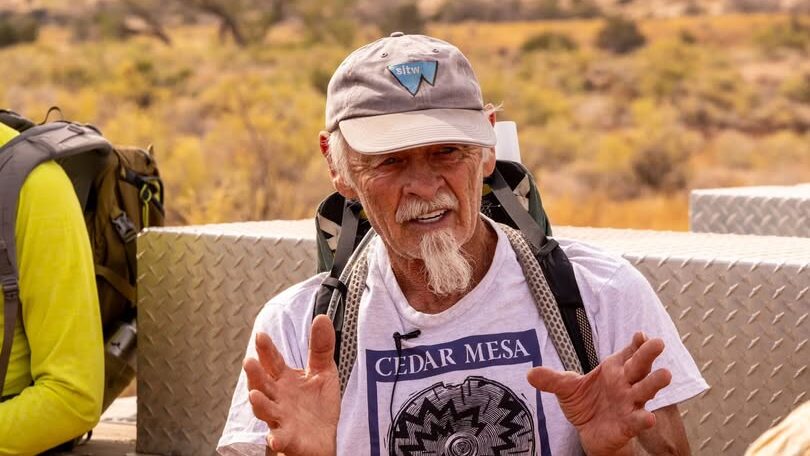Some information may be outdated.
“We need more people growing,” said Shiree Duncan, Moab Farmers Market manager, on the need for more locally grown food. “Demand exceeds supply.”
The market is held at Swanny City Park on Friday, July 20, from 4 to 7 p.m. Vendors sell locally produced vegetables, fruits and meats, as well as art, plant-based medicinals, jewelry and an abundance of wares. The market will be open each Friday through October 24.
In addition to managing the Moab Farmers Market, Duncan sells vegetables and flowers at a booth with gardener Hayley Olsen under the name Right Arm Farm. Duncan and Olsen started their market enterprise in 2017 and they grow a variety of crops. Their top three favorites are beets, cherry tomatoes and kale.
Other crops they produce include cantaloupe, basil, spinach, eggplant, cucumbers and radishes. On July 20, they plan to bring a fresh, seasonal selection of carrots, onions and turnips to the market.
Though Right Arm Farm is new, Duncan and Olsen have known each other since both attended Utah State University (USU) in Logan in 2002. They both participated in the Utah Conservation Corps, and worked together for Peach Valley Farm in Silt, Colorado.
After that, Duncan went on to work at a farm in Washington State, and then managed a farming business in Utah’s Cache Valley. Meanwhile, Olsen earned a degree in soil science and gained experience in herbal medicine and natural building, then began working in Moab to build straw bale homes as an intern. Duncan’s connection to Moab remained strong; her grandparents, Elmer and Shirley Duncan, have lived in Moab for as long as Duncan can remember.
Right Arm Farm products are grown on a plot of land at Duncan’s grandparents’ home in Moab, and at a second location in Spanish Valley.
Right Arm Farm uses organic growing practices and strives to avoid the use of synthetic fertilizers and pesticides. Instead, they work to use non-chemical methods such as compost and cover crops that are planted to improve soil fertility, smother weeds and help control pests.
A favorite cover crop is cow peas, also known as black-eyed peas. Cow peas enhance soil fertility by drawing atmospheric nitrogen into the soil, and out-compete weeds for garden space. Drip irrigation minimizes water use on their plots.
While they see potential for expansion, Duncan and Olsen are uncertain about the future of Right Arm Farm.
Duncan expressed a concern about Moab’s long-term water security, especially when “the La Sal Mountains don’t have snow” due to the continued drought conditions.
“We’re playing it season by season,” Duncan said.
Ideally, Duncan said, she would like to see “community garden spaces dispersed throughout the community.”
“Having a community garden lets people share resources, share knowledge,” Olsen said.
Olsen touched on the environmental and health benefits of growing food at the local level. She said the nutrient content of foods sold fresh is much greater than that of food that has been shelved and shipped long distances.
“I don’t want to get too preachy about gardening,” Olsen said. “But our (industrial agriculture) food system is not sustainable. Mass production is not regenerative to the land.”
Olsen said participating in sustainable growing is a hands-on lesson in how people are connected to their environment.
Duncan worked with Roslynn Brain at Utah State University to compile a directory of local food producers for the “Moab Grown! 2018 Local Food Guide.”
The food guide states, “Those growing and producing food within a 100-mile radius of Moab have been included in this guide to help you make locally sourced purchasing decisions.”
The 2018 local food guide may be picked up, free of charge, at the Moab Farmers Market.
When: Friday, July 20, from 4 to 7 p.m.
Where: Swanny City Park, 400 North and 100 West
Cost: Free to enter
Info: Call 435-881-9060 or email rightarmfarm@gmail.com
“Having a community garden lets people share resources, share knowledge.”
Right Arm Farm has veggies and vision
Appreciate the coverage? Help keep local news alive.
Chip in to support the Moab Sun News.





